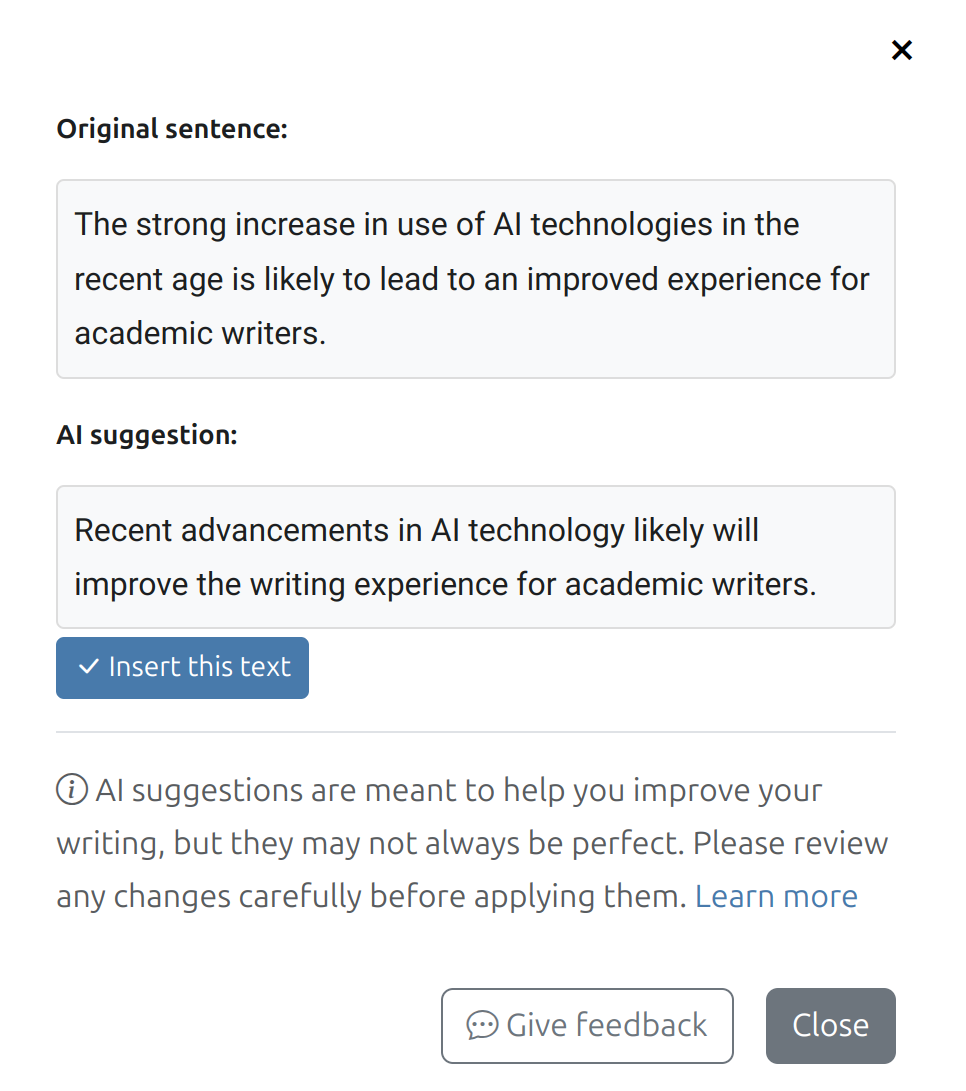AI Suggestions for Academic Writing
ReallyWrite now has AI-powered suggestions!

How It Works
When you click on an underlined or highlighted issue, you will now see an "AI Help" button at the bottom of the right panel. If you click the button, you will get an AI suggestion to improve that sentence.
We are using a customized large language model that tries to fix the issues that ReallyWrite identifies. This customization works a lot better than a generic LLM like ChatGPT, which often makes the text more complex than necessary or applies "academic style" (which can seriously harm the clarity of your writing).


 Photo by Brooke Cagle
Photo by Brooke Cagle